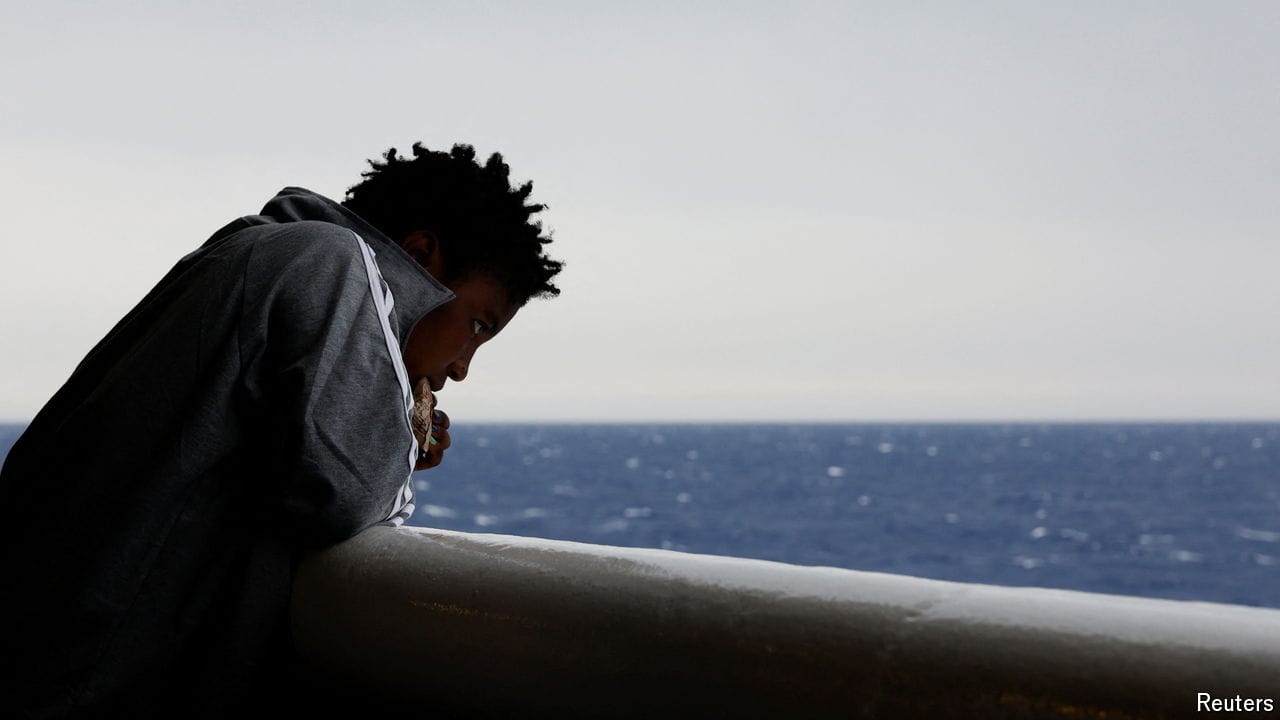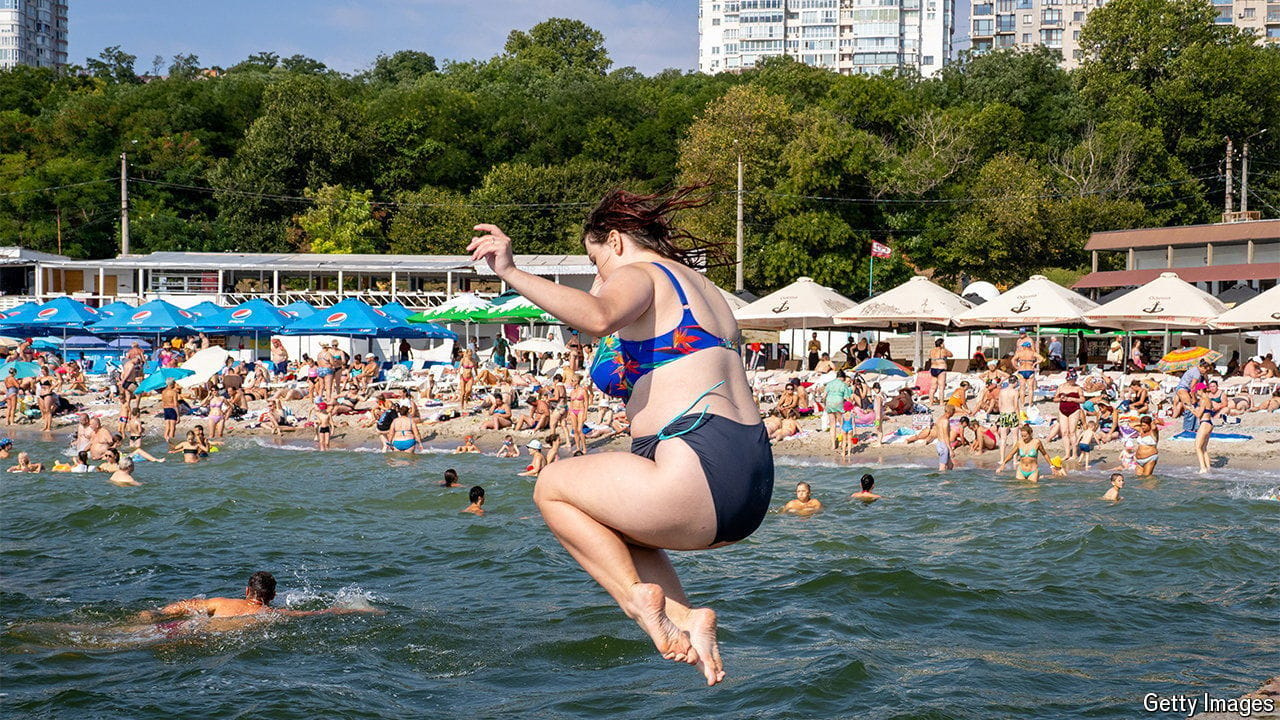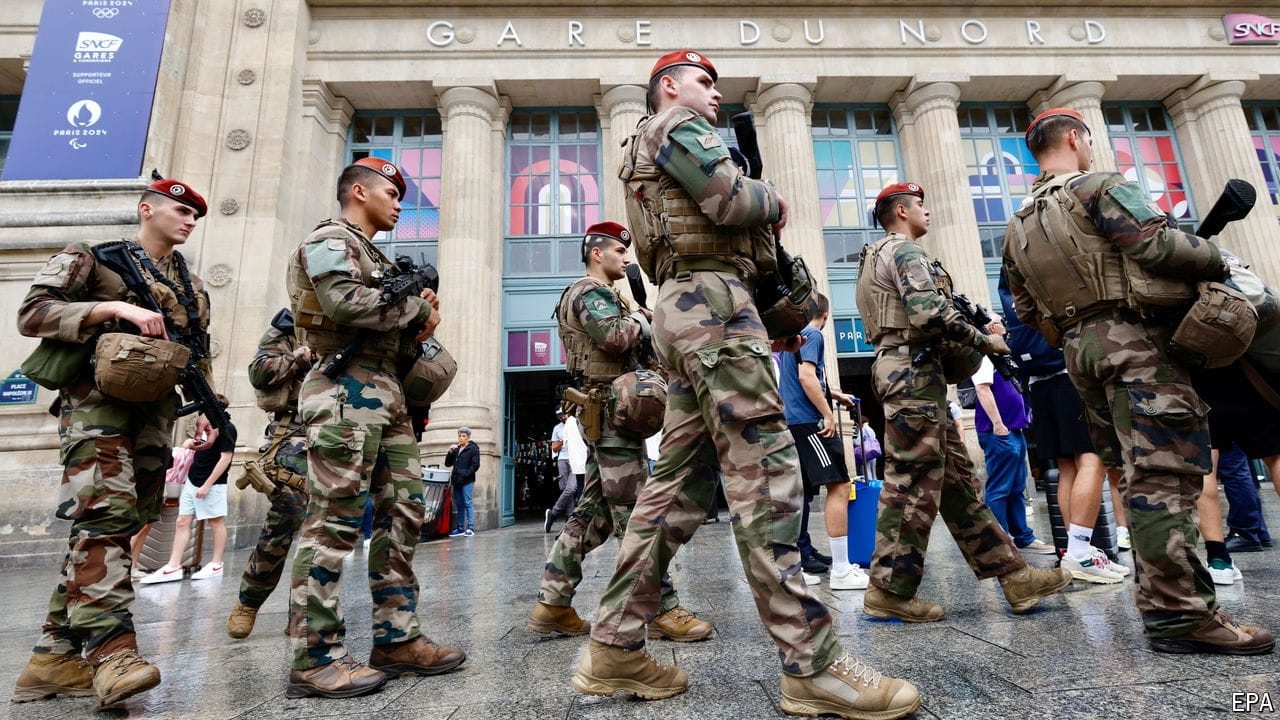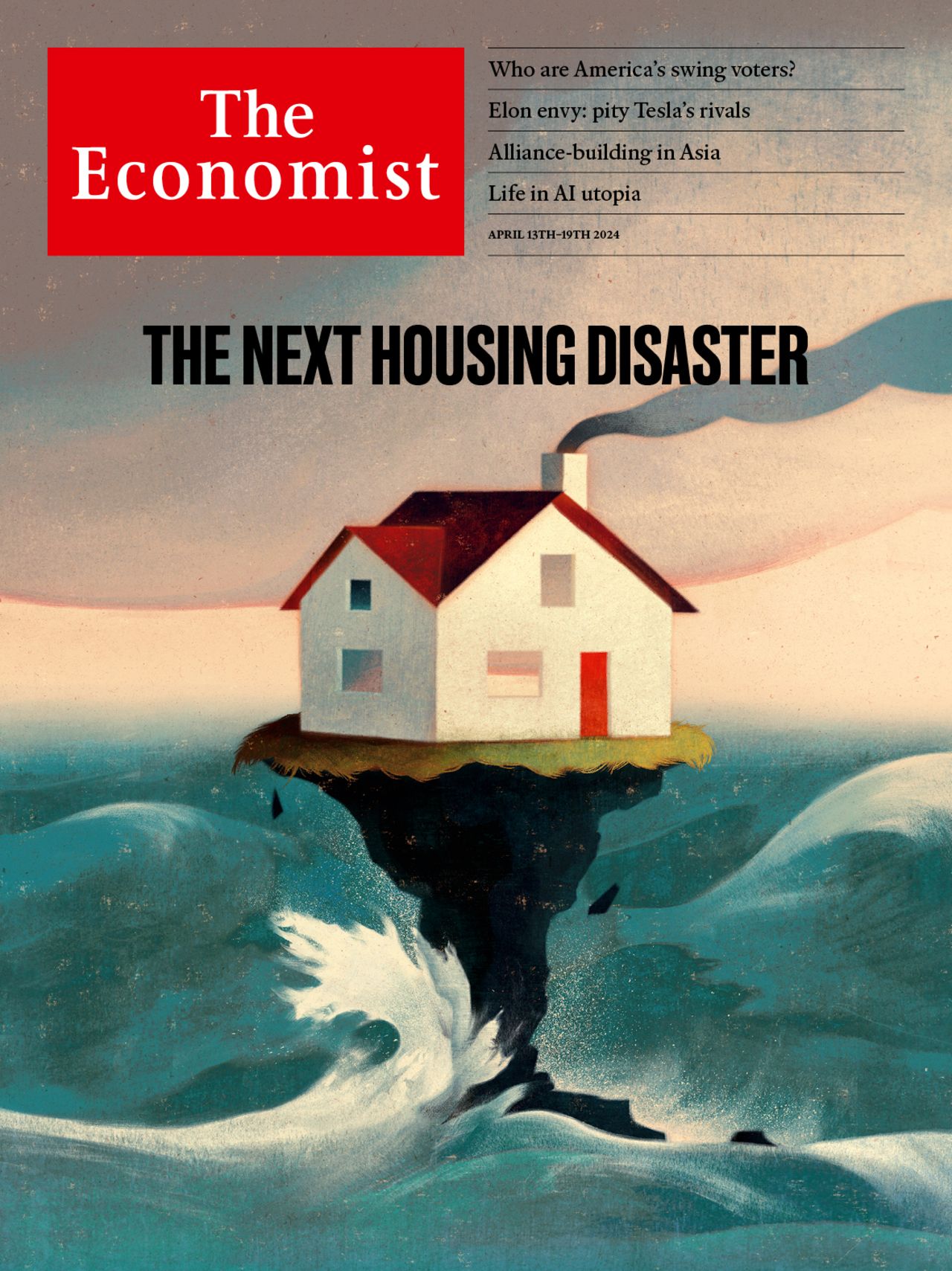Criminal networks are well ahead in the fight over Europe’s ports
Cocaine seizures are sharply up, but much more is getting through

EUROPE’S PORTS are drug hubs. On February 16th the Port of Cork seized €32.8m ($35.6m) worth of crystal meth. Last year Antwerp, one of Europe’s main drug gateways, confiscated record amounts of cocaine. Most drugs, though, elude customs and end up on the streets. More than a quarter of seizures of illegal firearms and half of all homicides in the EU are linked to drug-trafficking. The bloc’s illegal-drug market is now reckoned to be worth at least €31bn a year, according to the EU’s main drugs-monitoring agency.
Ports are relatively safe terrain for narcos. Vast container traffic helps dodgy deliveries slide under the radar. Antwerp, Europe’s second biggest port, after Rotterdam, handles around 290m tonnes of cargo every year. Drugs hidden in crafty spots, like inside frozen tuna or in sea chests, are difficult to spot. Refrigerated containers carrying fresh produce, which require faster processing, are popular places to stash drugs. On February 8th the port authorities in Southampton seized 5.7 tonnes of cocaine in a banana shipment from South America. It was the biggest class-A drug seizure in Britain’s history.
This article appeared in the Europe section of the print edition under the headline “Rise of the narco-ports”
Europe April 13th 2024
More from Europe

Will a new “pact” of ten laws help Europe ease its migrant woes?
It will require an extraordinary number of institutions to work together

Amid the bombs, Ukrainians rediscover the beach
Odessa gives itself permission to tan again

Who was behind the arson attacks on railways before the Olympics?
With thousands stranded, suspicion falls on Russia or Iran
Italian right-wingers have renamed Milan’s airport after Silvio Berlusconi
A finger in the eye of those who detested the late populist leader
European countries are banding together on missile defence
The Ukraine war shows how dangerously few interceptors they have
Peter Magyar is reinvigorating Hungary’s struggling opposition
Attacking Viktor Orban’s corruption wins votes for a political newcomer
